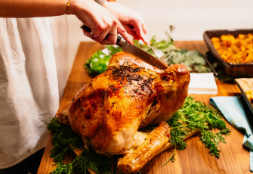The 69th Primetime Emmy Awards go down on Sunday night. As with any entertainment-related award show that's as much about politics as it is about art, the favorites for each category will likely win the day. But there's always room for a few surprises. And so, in hopes that the universe is paying attention, we're making the case for four underdogs we'd like to see take home some hardware this weekend.
Note: Odds were taken from Gold Derby on September 14th. They are subject to change.
Tony Hale, Veep, Supporting Actor in a Comedy Series (33/1)
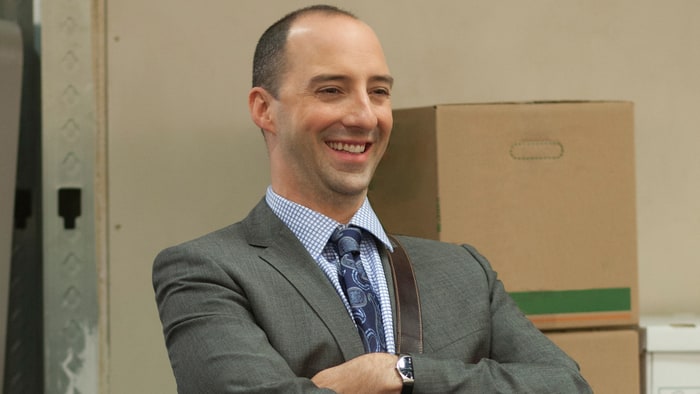
It's widely accepted at this point that Tony Hale is a comic genius. A very particular comic genius, to be sure, but a comic genius nonetheless. With his turn as Buster on Arrested Development and, for the past five years, his role as VP Selina Meyer's bag man/personal assistant/emotional punching bag on Veep, he's become pop culture's epitome of the momma's boy: needy, insecure, enfeebled, codependent, masochistic, defensive and somewhat oblivious. And while Jessica Walter's Lucille Bluth and Julia Louis-Dreyfus's Selina have alternately served as great narcissistic complements to Hale, the unapologetically craven and egocentric political world of Veep gives Hale's Gary that much more edge. Even at their worst, you felt there was an underlying sweetness to the Bluths; not so with Selina and Co., who operate with an almost sociopathic inability to empathize or care for other human beings.
This season, in particular, Gary and Selina's relationship took center stage in several pivotal episodes. In "Justice," Selina shows some matronly instincts towards Gary as they both recover in the hospital. You think there might be a breakthrough, but Selina's goodwill is short-lived. Hale, swallowing his disappointment and stuffing it deep, deep down inside, is in a way cipher for the viewer who continually expects Selina's character to follow a more predictably redemptive arc. This feeling is intensified later in the season, when Selina turns Gary's birthday party at his family home into a publicity stunt, and Hale turns in a performance that is very funny, yes, but also genuinely sad. Ultimately, we come to realize that Gary is just as static and stuck and fucked up as Selena. (Except, well, at least Selina has her legacy going for her.)
Given that Hale has won the Emmy for his role as Gary twice before, I'd normally be inclined to root for someone else. But the favorite here is Alec Baldwin, for his guest spots as Trump on SNL. I think people have the tendency to conflate Baldwin's performance with the outsized impression it's had on the culture. Which isn't to say it isn't a good impression (and that cultural significance shouldn't play a role in giving someone an award). I just think it makes more sense, in this case, to reward the show and its writers over Baldwin, whose success here was a result of timing and convenience as much as anything else. Compare this to Melissa McCarthy, who created a far more interesting and original persona for Sean Spicer, and was every bit deserving of her Guest Actress Emmy (which she received earlier this week). Had Baldwin been nominated in that category, which he probably should've been, I'd say without a doubt that he deserved to take home an Emmy. So let's give this one to Gary. Sadly, we only have one more year of him, anyway.
—Sam Eichner
Keri Russell, The Americans, Actress in a Drama Series (66/1)
Matthew Rhys, The Americans, Actor in a Drama Series (66/1)
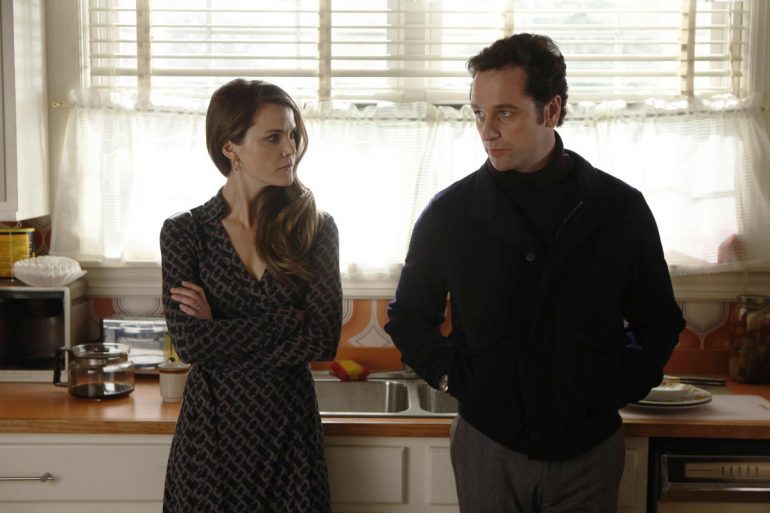
If it's not obvious, I'm packaging these two together because they're two halves of a whole on the same show—which has quietly been one of the best on television for its entire run—and because they have the same odds. It's their chemistry (they got married in the middle of the show's run) and understated performances that make it possible for a show about a supposedly ideal American family that's actually a couple of Soviet spies in the last years of the Cold War not only one of the most suspenseful, but also one of TV's most emotionally satisfying.
Take away from The Americans the geopolitical intrigue, the tight action scenes, the pitch-perfect '80s style and the constant suspense, and you've still got a show about marriage worth watching, because you've got these two playing Elizabeth and Phillip Jennings at a rolling boil whether they're quietly struggling with how to handle Paige and Henry as they grow old enough to realize something's off, or cross-referencing their professionally mandated long-term extramarital relationships. It's time, after five seasons, to reward their respective performances, which have been restrained and nuanced where they could so easily have devolved into ham and cheese.
—Geoff Rynex
David Harbour, Stranger Things, Supporting Actor in a Drama Series (50/1)
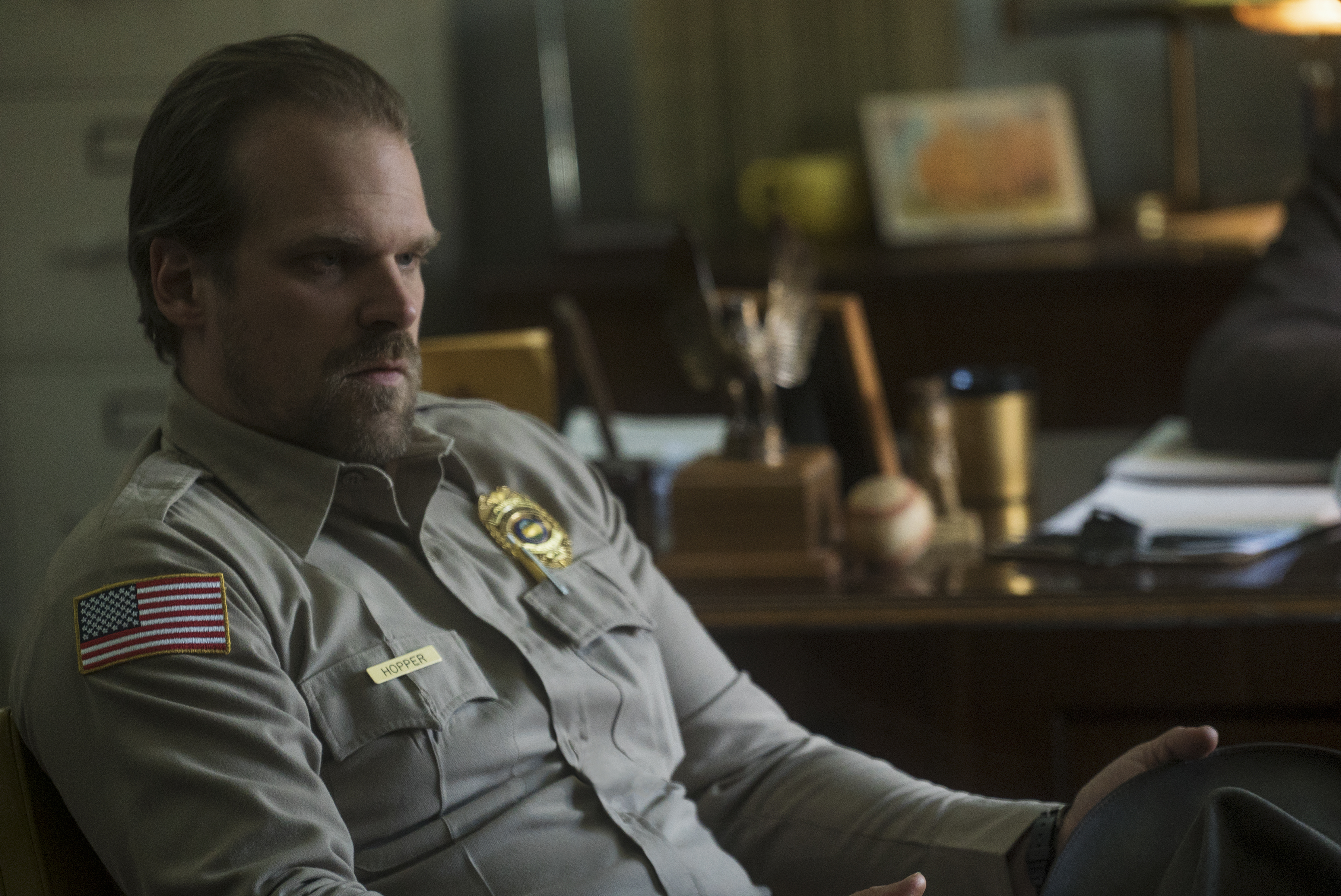
There’s a significant scene in the very first episode of Stranger Things wherein Sheriff Jim Hopper, about whom I had previously had zero feelings, is painted in a rather unpleasant light. It’s the scene where he interrogates main characters Mike, Dustin and Lucas into the whereabouts of their best friend, Will, who has just gone missing in the middle of the night. See:
It’s also the precise moment I decided I did not like Sheriff Hopper, and in turn (because I cannot discern fictional characters from the actors who play them), David Harbour. I think it’s because he is a little too impatient for my liking with three young children who have just lost their best friend. Or maybe it’s just his general disinterest and annoyance with having to do what would seem to be a major part of his job: searching for a missing person. Regardless, I decided then and there that he would be the unlikeable foil who only got in the way of my boys’ thorough investigation. But just as any critical story arc often goes, a few layers get peeled back, true character is revealed and the audience is proven too quick to judge.
Hopper’s transformation begins when you learn his daughter died of cancer before the present makings of the story—easily the kind of backstory that makes any viewer say, “Ah, fuck. Maybe I’ve been too hard on this person in my television.” And it continues through scenes like the one in the library, where Hopper stumbles in his charming self-awareness upon learning the town librarian is, you guessed it, still bitterly cold from a previous one-night stand! Throughout each and every episode, it becomes abundantly clear that Hopper genuinely cares. And amidst a sea of fixated characters and plot-lines (Will is still missing, Winona Ryder is still playing this psycho mom super well, etc.), it’s Harbour’s work as the constantly evolving Hopper that is one of the very best parts of the show.
His character transformation comes full-circle when Hopper finally finds Will and proceeds to save his life. Theoretically, it’s nothing we haven’t seen in television before: a character saves another from suffering the same tragic fate he’s already suffered. Yet Harbour turns the scene into one of the most triumphantly tear-jerking moments of the show.
Harbour’s odds to win Best Supporting Actor at this year’s Emmy Awards are not as high as say, Millie Bobby Brown’s to win Best Supporting Actress. Millie’s face is also plastered on a hoodie worn by the likes of 2 Chainz (arguably a greater honor, depending on who you ask). But it’s Harbour who truly deserves to take home a golden-winged statue come Sunday night.
—Thompson Brandes
Better Call Saul, Best Drama Series (80/1)
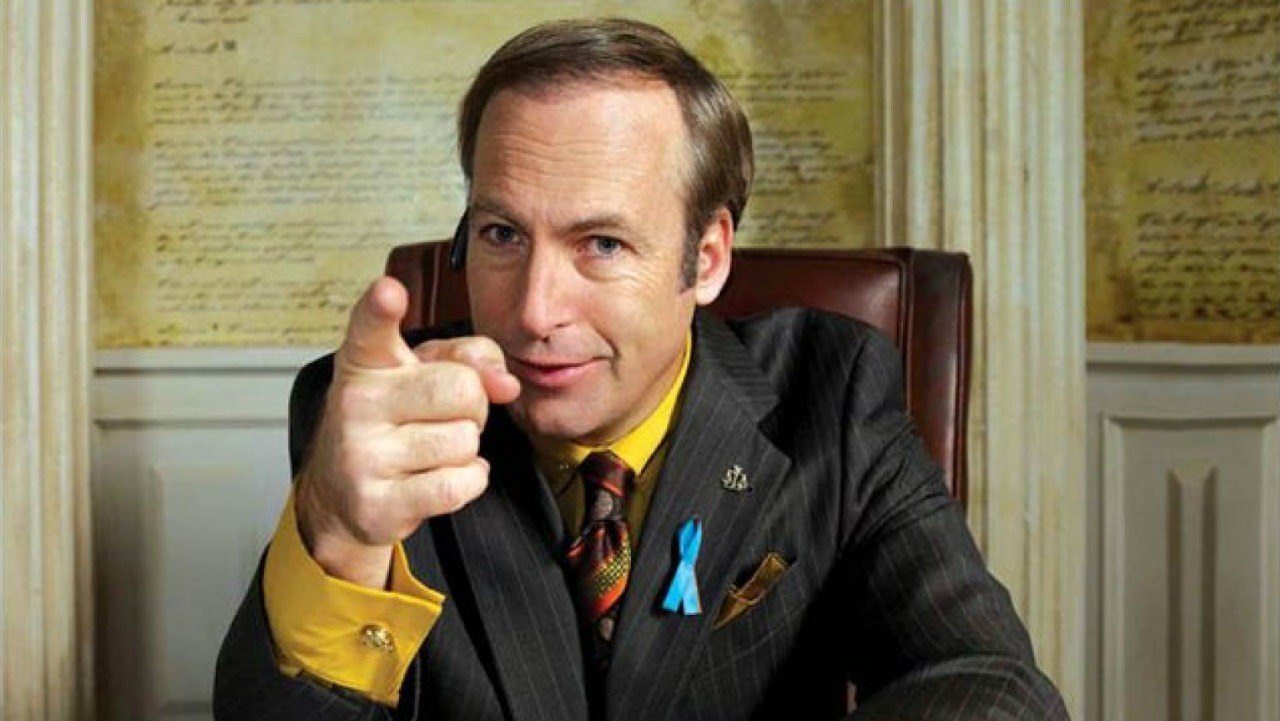
There is no slow burn better than Better Call Saul. Vince Gilligan takes a perverse pleasure in snuffing Breaking Bad fans’ expectations, orchestrating more white-knuckle tension in a professional exchange between attorneys than you might find in the attempted assassination of a cartel boss.
Tracing the long southbound arcs of Jimmy’s McGill’s closet relationships, the show allows for greater nuance than your average antihero tale, stabbing at dark corners of the main character’s see-sawing morality, and literally wrenching our hearts over the isolation of a senior citizen, the torment of Nacho and Chuck’s ultimate relapse.
The viewer’s patience was rewarded this season as several long-building storylines congealed into feared tragedy and the coming of much worse, revealing Gilligan's same beyond-remarkable show-running was actually carrying us through all those creepy visits to Chuck’s house this whole time. And that’s before we can even get into the phenomenal Jonathan Banks stuff.
—Hadley Tomicki


